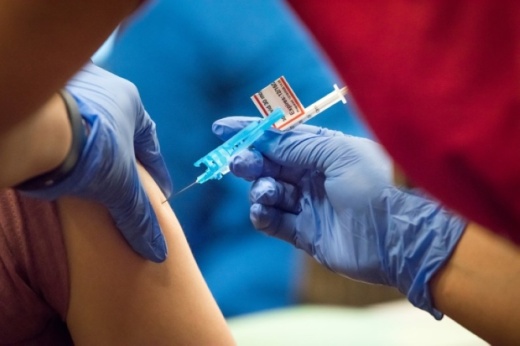Several versions from companies including Moderna and Pfizer have come out with versions of the vaccine. Is one vaccine better than another?
With respect to effectiveness and safety, there is no significant difference between the Moderna and the Pfizer vaccine. If one speaks to a virologist or immunologist, [they will say] there are many differences, although these are not important at the community level. What is important to know is that these two vaccinations are equally safe and efficacious and that there is no risk of infection with either. These are both mRNA vaccinations. mRNA is a message to the immune cell to create a specific protein that stimulates an immune response resulting in the production of what are called neutralizing antibodies. I want to emphasize: There is no risk of viral infection associated with receiving the vaccine.
The vaccines are requiring two shots at different times. Should patients get the same vaccine for both doses?
Yes, although it is not necessary to receive both vaccinations from the same source. If your circumstances require you to receive your two vaccinations at different geographic sites, that is OK. What is important is [that patients] receive the two vaccinations from the same vaccination company.
Are there likely to be costs associated with the vaccine?
At this time, for the general public, there is no cost associated with vaccination. Vaccinations purchased with tax dollars will be distributed to citizens at no expense. Private healthcare practitioners do have the right to assess a delivery fee [but] not a fee for the vaccination itself. The fee for vaccination delivery may be cash pay, or, in some cases, an insurance claim may be filed. Patients must check with their own insurance companies to know what their policy covers and what their financial responsibility is to their health care practitioners.
Should people still maintain social distancing practices and wear a mask even after getting vaccinated?
Yes. We all must continue to practice safe distancing—distance and outdoors are our friends—mask wearing, hand hygiene and mindfulness with respect to personal space in order to minimize viral transmission and propagation of the pandemic. The more we do for ourselves, the less somebody else has to do for us and the sooner all of this will be a part of our history. The safety measures will have to be applied until herd immunity is reached. Herd immunity is when enough individuals in the community are immune to the disease to prevent spread through person-to-person contact. This is achieved either by natural immunity after having been infected and developed protective antibodies or by vaccination. We still have a long way to go before we reach that goal. Please continue to travel along this journey as safely as possible.
With all of the new COVID-19 variants we are seeing, will there need to be new vaccines, or will the ones that are already out cover them?
The virologists inform us that mutations are to be expected and may not render our vaccinations ineffective. Only time is going to provide us with the information necessary to answer this question in a credible fashion.
Can I get the vaccine if I have been recently vaccinated for other things, such as flu or pneumonia?
With respect to timing of other vaccinations, there should be at least a 14-day waiting period between one vaccination and the next. It is important that your health care practitioner know that you have recently received another vaccination, so please make that known if it is your case.
If I already had COVID-19, should I still get the vaccine? If so, when?
Yes. If you have had COVID-19 and recovered, you should proceed with vaccination at the first available opportunity. That is a dictum that holds true for all of us. The only caveats are if one has received monoclonal antibodies or convalescent plasma. Then, a waiting period of 90 days is indicated. If one has a known history of immediate allergic reaction to the mRNA virus or polyethylene glycol, then the vaccine is contraindicated.
Is this going to be like a flu vaccine that requires a new one each year, or will it more likely be a one-off?
Only time will tell. This is an excellent opportunity to emphasize the rapid pace of learning for all parties involved, the fluidity of the situation, the necessity of time and the accumulation of information. Then, that information must be reviewed and checked for validity before it can be distributed to the citizens of our country as guidance [recommends]. This takes time. Please try to be patient.
Are the two doses the same, or is the first one different from the second?
Yes. The two doses are the same. There is no difference between them.
Are there any preexisting conditions that would make getting the vaccine too dangerous for certain people?
Preexisting conditions that preclude vaccination include a history of immediate allergic reaction to the vaccination and a history of allergic reaction to polyethylene glycol.
Does the vaccine prevent recipients from spreading COVID-19 after the second dose?
Once again, it is too early in the process to know the answer to this question. Please assume that after vaccination, you may still be able to harbor the virus and unintentionally infect somebody else there by propagating the pandemic, which professionals are trying to bring under control. Once again, it is best if we all work together in a collaborative fashion, put safety first [and] use an ounce of prevention so that we don’t have to use pounds and pounds to attempt to cure.





